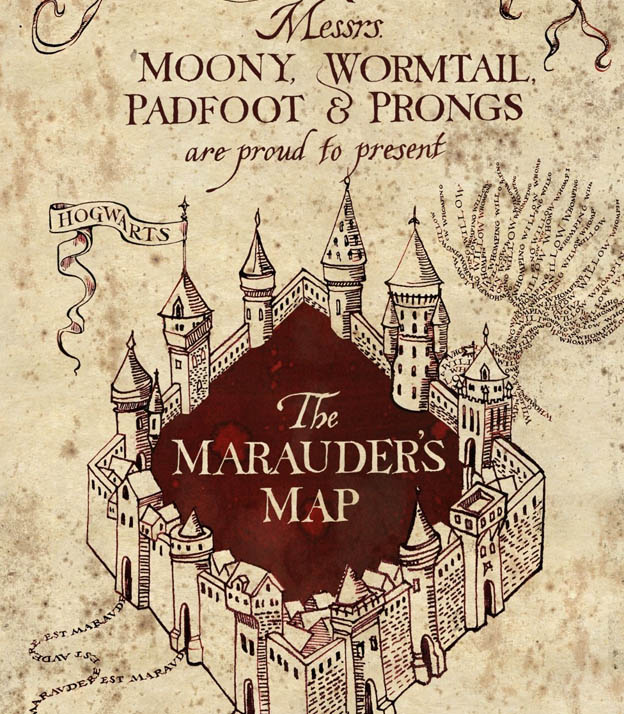‘X’ marks the spot: Find your way to free lecture on the history of maps

The Marauder's Map, used by Harry Potter to navigate Hogwarts School of Witchcraft and Wizardry, is just one example of a map in pop culture. McMaster's Walter Peace will explore the history of maps and mapmaking at a free campus lecture Saturday night.
From dots on cave walls to the wonders of Google Earth, maps have come a long way over the last 16,000 years.
First used to plot the locations of objects in the night sky, maps have since been used to guide us around cities, countries and the entire globe.
“They reflect the evolution of knowledge and society,” says Walter Peace, associate professor of geography and Earth sciences. “They’re historical objects, tools for identifying patterns in space, works of art. There are many ways to think about maps.”
Peace will tackle the topic when he speaks at a free campus lecture on Feb. 2.
Called “Here Be Dragons: Mapping Our World”, the talk will explore the history of maps and the stories they tell about human history.
“One of the earliest maps of our country with the name ‘Canada’ on it was drawn in 1550,” he says. “Canada, as such, was a long way off from existence, but it illustrates hopes and dreams and the beginnings of New France – you can see history unfold on that map.”
Peace will also touch on the importance of maps in pop culture and literature.
He points to Thomas Moore’s maps of Utopia, the maps of Hell included in Dante’s Inferno and even the Marauder’s Map – used by Harry Potter to navigate Hogwarts School of Witchcraft and Wizardry – as examples.
“These are maps of imaginary places, of places that don’t exist,” he says. “But it gives an authenticity to things if you can say ‘we have a map of it’.”
Maps have even infiltrated our everyday language, commonly popping up as metaphor.
“We talk about someone being off the map, or all over the map, or of mapping out a strategy. It has very strong implications for how we see ourselves moving through time and space, in an abstract way.”
Here Be Dragons: Mapping Our World, hosted by The Hamilton Association for the Advancement of Literature, Science and Art, is scheduled for 8 p.m. Saturday, Feb. 2, in the McMaster University Medical Centre’s Ewart Angus wing, Room 1A1. Admission is free.

